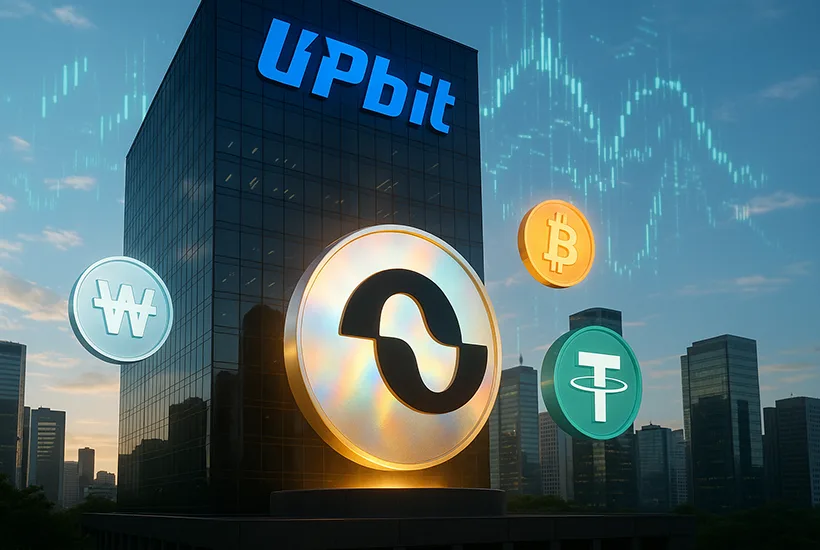- South Korea’s Upbit will list Boundless (ZKC) in three trading markets: KRW (Korean Won), BTC (Bitcoin), and USDT (Tether).
- Deposits and withdrawals will be supported via the Ethereum network.
- Binance Alpha is running a two-phase airdrop, where eligible users can claim 90 ZKC tokens by spending Alpha Points.
South Korea’s largest crypto exchange, Upbit, announced that it will list Boundless (ZKC) in three trading markets, namely, KRW (Korean Won), BTC (Bitcoin), and USDT (Tether). Upbit will begin supporting the deposit and withdrawal of ZKC via the Ethereum network. Trading will begin from 11 pm (KST) on the 15th of September, 2025, for the trading pairs KRW/ZKC, BTC/ZKC, and USDT/ZKC.
Meanwhile, Binance Alpha will also be launching the token at the same time. Eligible users on Binance Alpha can claim a ZKC airdrop using Alpha Points once trading starts. Binance’s listing of ZKC includes support for spot trading vs USDT, USDC, BNB, FDUSD, TRY, etc., with deposit functions beginning ahead of the spot trading launch.
Dual launch + airdrop campaign
Before its listing, Upbit notes that the “reference price” in CoinMarketCap may not yet be registered, meaning users trading immediately after launch should be aware of possible discrepancies in pricing information. Some reports say users can claim up to 90 ZKC using Alpha Points, though details may vary or be subject to change.
Having Upbit list ZKC with fiat (KRW) trading opens access to South Korea’s large retail base, potentially boosting volume and liquidity. And with airdrops and promotional campaigns like those run by Binance & Alpha can tend to generate pre-listing interest, which can lead to surges in trading volume early on.
What is Boundless (ZKC)?
Boundless is a decentralized protocol built around zero-knowledge (ZK) technologies. It aims to support scalable computation: off-chain execution with on-chain verification (via proofs). Its design is informed by concepts like prover nodes that compute off-chain and succinct proofs that are verified on-chain, reducing redundant computations across nodes.
The token hopes to be chain-agnostic in terms of proof verification, serving multiple blockchains, rollups, or zkVMs. The circulating supply of ZKC is expected to be around 200.9 million tokens, which is approximately 20% of the total 1 billion genesis allocation.













